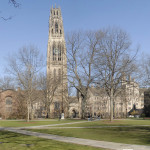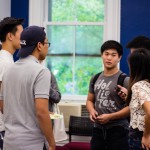by Ashia Ajani and Nicole Chavez
This past Wednesday, Jenn Fang, an Asian-American post-doctoral student, spoke to a diverse crowd of Yale students regarding the myth of the “Model Minority.”
As explained by Fang, The idea of “successful” minorities and “problem” minorities came as a direct response to the Civil Rights Movement of the 1960s and 70s. The ideology developed as Japanese-Americans were successfully working their way up the income ladder.
White observers began to wonder: “If Asian-Americans were able to overcome post-war discrimination and racism, what was wrong with other minorities?”
In relation to this dynamic, Fang discussed the work of Jennifer Lee, Professor at the Sociology School of Social Sciences at UC Irvine. Lee describes this stereotype as having “limited benefits.” It can begin as a stepping stool, but ultimately becomes a hindrance.
Fang went on to explain that.contrary to popular belief, the myth of the “Model Minority” did not to applaud Asian Americans. The intent was to disparage other minorities. Fang also explained how the term “Asian American,” which encompasses many ethnicities, homogenizes the experiences of people of Asian descent when the experiences of these different groups should not be lumped together.
Perhaps the worst part of the model minority myth is the fact that it completely diminishes other issues affecting Asian-American communities. Hate crimes, depression, suicide, and lack of sexual health conversations are just a few examples.
Many young Asian Americans are faced with the idea of a “self-fulfilling prophecy” that cites their race as an indication of their intelligence. When faced with academic struggle, they suffer an identity crisis. This often centers on the belief, that their academic difficulty is a sign that something is fundamentally wrong with them. This leads many Asian-American teenagers and young adults into a cycle of psychological turmoil.
When asked how to overcome this stereotype and dismantle systems pitting minorities against one another, Fang did not have a definitive answer. She emphasized the importance of cooperating with racial activist groups as a way of bridging the gap that has divided marginalized people.
You can check out Fang’s Asian American Feminist blog at:
Or through Facebook at:


